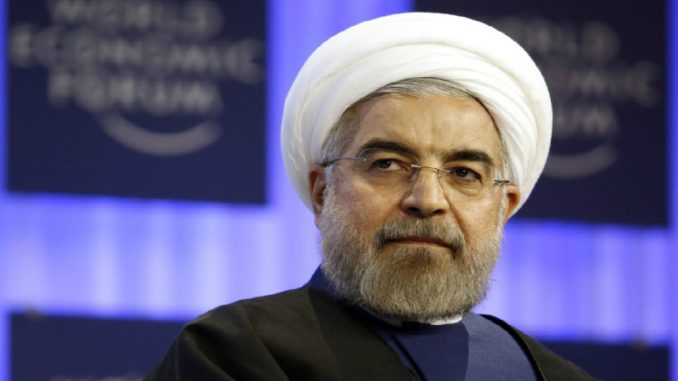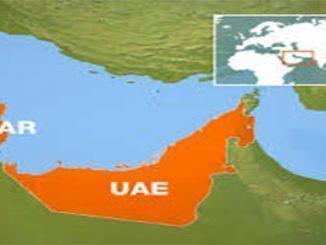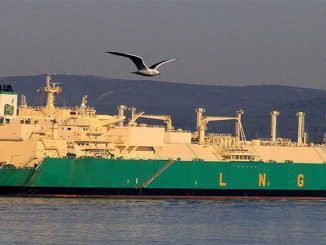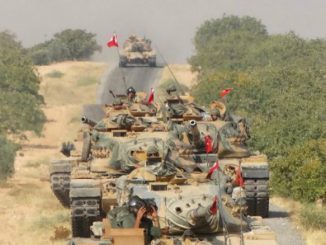
Iran’s six candidates for the presidential election squared off in their first live television debate on Friday, where the current president Rouhani was put under heavy criticism over his economic policy.
Iran made a historic nuclear deal with P5+1 powers in 2015, in which Tehran agreed to amend its nuclear output in order to lift all nuclear-related economic sanctions, freeing up tens of billions of dollars in oil revenue and frozen assets.
After lifting the sanctions, Iranian president Hassan Rouhani visited Europe and made deals that worth billions of dollars. European companies started looking for investment opportunities in the growing Iranian market.
Rouhani won the presidency in 2013 with the backing of mainly of young people and women. He promised to bring Iran out of its international isolation and create a freer society.
But many ordinary Iranians have lost faith in him because he has not been able to improve the economy despite the lifting of sanctions in January last year under the nuclear deal.
In addition, Iran’s Supreme Leader Ali Khamenei and his hardline loyalists, have criticized Rouhani’s policy of rapprochement with the West, arguing the 2015 nuclear accord had not yielded the benefits he promised.
Doubts have been cast on whether Hassan Rouhani will be capable of pulling off a victory as he is facing escalating criticizing from his rivals, the hardliners, who have nominated various figured to run for the presidency.
The final list of the presidential candidates included six figures: Hassan Rouhani: Reformist and the current president, Ebrahim Raisi: Hardliner and conservative cleric, Mohammad Bagher Ghalibaf: Hardliner and former commander in Iran’s Revolutionary Guards, Eshagh Jahangiri: The current vice-president, Mostafa Mirsalim: Hardliner and currently a university professor, Mostafa Hashemitaba: Reformist, previous minister and vice president.
Limited economic growth
Televised debates are a relatively new feature of Iranian presidential elections, and are believed to have influenced the results of votes in 2009 and 2013.
Three live debates were announced by the Iranian interior ministry and the first took place on Friday, 28 April.
During a three-hour debate carried live on state television, Rouhani’s opponents sought to denigrate his economic record and said that the Islamic Republic would be harmed if he were re-elected on May 19.
“The gap between rich and poor has widened in Iran…Monthly cash handouts to poor people should be tripled,” Ebrahim Raisi, an influential Shi’ite cleric who is Rouhani’s strongest rival, said in the debate in a nod to lower-income rural Iranians. The monthly cash subsidy is currently around $14.
“One of the main priorities of the Islamic Republic is to preserve social justice…Steps should be taken to protect poor people. We need to overhaul the economic system,” said Raisi, who enjoys the support of Supreme Leader Ayatollah Ali Khamenei.
Rouhani, who was elected by a landslide in 2013, defended his economic record, complaining that it had been subjected to “lies and defamation”.
He repeated that Iran’s road to economic recovery, growth, and modernization lay in deeper engagement with other countries.
“More investment means the creation of more jobs…If we want eight percent economic growth, we need foreign investment.”
Millions of jobs
Ghalibaf hammered Rouhani and his confidant and first vice-president, Eshaq Jahangiri, with both sides trading accusations of “lies” and making “insincere” comments.
Ghalibaf berated Rouhani for failing to make good on a promise “to create four million jobs”, saying unemployment was Iran’s “biggest problem”.
Rouhani riposted by saying: “I never promised to create four million jobs. That’s a lie.”
Ghalibaf also accused Rouhani and his government of “bad management” and of “repeatedly saying that the government does not have the means” to solve the Islamic republic’s problems.
He also took a poke at Jahangiri, whose candidacy was a surprise entry at the last minute, saying the vice-president threw his hat into the ring only to back up Rouhani and help him in the debates.
According to several reformists, Jahangiri is expected to pull out of the race after the three live television debates in order to support Rouhani.
Jahangiri dismissed the attacks against himself and accused Ghalibaf of running the capital “with the mentality of a military man”.
A war veteran, Ghalibaf is a former Revolutionary Guards commander and police chief. This is his third run for the presidency.
How is the real situation on the ground?
Iran’s real gross domestic product grew by 7.4 percent over the past year but that was mainly driven by oil exports rather than job-creating investment, according to the International Monetary Fund. Official unemployment runs at just over 12 percent but independent analysts put it at around 20 percent.
Khamenei and hardline loyalists have heaped pressure on Rouhani, saying the diplomatic opening afforded by the nuclear deal had not yielded benefits promised by the president.
The economic payoff has been limited by factors beyond Rouhani’s ability to rectify soon under Iran’s complex system of dual theocratic and republican rule, analysts say.
Many foreign investors have been put off by obstacles to doing business such as the poor state of Iranian banks, the heavy role of powerful hardline institutions such as the elite Revolutionary Guards in the economy, a lack of clarity about the legal system as well as lingering unilateral U.S. sanctions.
Iran’s president broadly manages domestic affairs, above all the economy, and can influence foreign policy decisions. But overall state policy is the remit of Khamenei, who wields decisive powers across government and the military and security services, and warily endorsed the 2015 nuclear settlement.
Despite his vulnerability over the economy, analysts say Rouhani retains a good chance of re-election thanks to the support among large numbers of urban young and women who have welcomed a modest relaxation of social restrictions since 2013.
They also fear that a return to a hardline presidency could usher in more repression at home and isolation abroad.
“I am tired of slogans, tired of political feuding…But I will vote for Rouhani. In the election I have to choose between bad and worse,” university student Homeyra Pazokian said.



